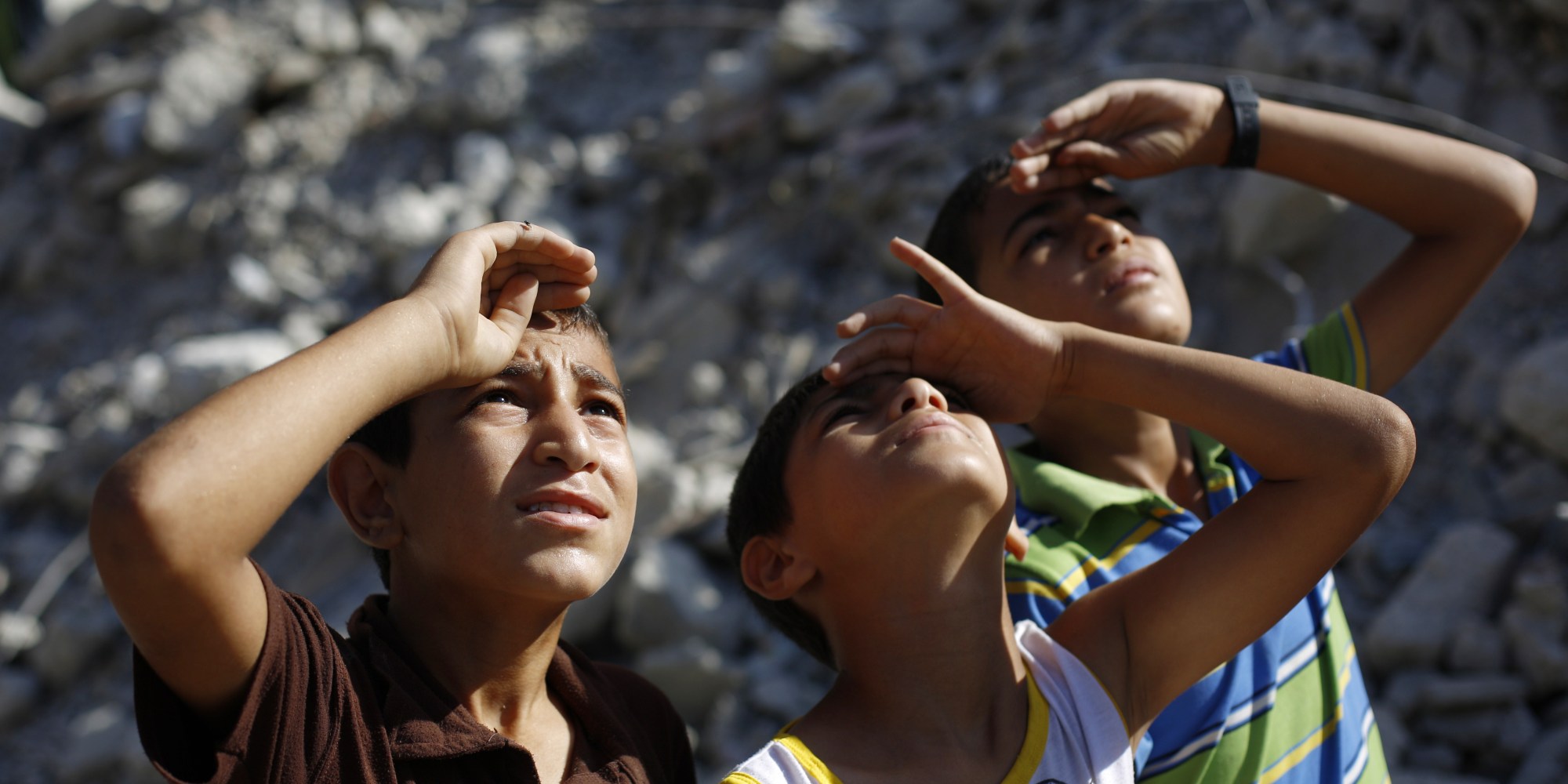Six months after a ceasefire agreement ended Israel’s 50-day military offensive on the Gaza Strip, Palestinians in the war-torn territory remain hostage to a UN-brokered reconstruction mechanism which has failed to deliver.
On Sept. 16, Robert Serry, the UN envoy for the Middle East, announced a deal to ease restrictions on imports of construction materials to Gaza to enable the reconstruction of the territory.
Over 100,000 homes were destroyed or damaged during the conflict, with thousands of other structures, including 24 schools, razed to the ground.
The Shelter Cluster, an international group co-chaired by the UN refugee agency and the Red Cross, estimates that an average of 440 trucks of building materials would be required to enter Gaza each day to complete the reconstruction process within five years.
Figures published by OXFAM on Thursday show that 1,661 trucks of the most essential construction materials — aggregates, steel bars and cement — have entered Gaza in the three months since a donor conference pledged $5.4 billion for reconstruction in October, less that 0.25 percent of what is needed.
At current rates it would take up to 100 years to rebuild homes, schools and other damaged infrastructure, OXFAM said.
“Without easing the blockade, the situation will not improve,” Oxfam spokesperson in Gaza Arwa Mhanna told Ma’an.
“During eight years of blockade there has been a natural growth of the population, but the development of services was frozen. After the recent conflict, what remained was destroyed.”
Under the Israeli blockade — in place since 2007 — strict restrictions exist on essential items such as cement and steel cables.
The Gaza Reconstruction Mechanism sought to assure Israel of its stated security concerns by ensuring the Palestinian Authority oversaw Gaza’s borders and the United Nations delivered and monitored goods once in Gaza.
The effective collapse of the Palestinian unity government and attacks targeting officials have led to a deterioration in the political stability of the territory, a factor which may have affected donor confidence, but the key issue remains a woeful shortage of Israeli-controlled imports.
“Israel is playing a game with allowing building materials to enter Gaza,” Sami Elramy, a journalist in Gaza City, told Ma’an.
“If you walk in Gaza and look around you will be astonished how people can manage to live in this situation. The neighborhoods that were destroyed are the same as 6 months ago, nothing has changed. The majority of the destruction is still there.”
Severe shortages in building materials have led many Palestinians to sell the little cement they receive from the UN on the black market as a means to survive.
In devastated neighborhoods such as Shujaiyeh — already extremely poor before the summer conflict — residents sell cement at up to five times its market value to those willing to pay, a vital means of survival for poor families amid a collapsed economy, Elramy says.
‘State of depression’
After the end of the 50-day conflict, many Palestinians were hopeful that the blockade would finally be eased and aid could by channeled in to rebuild Gaza.
The Palestinian delegation involved in August ceasefire talks in Cairo, together with senior Hamas officials, repeatedly insisted in their truce conditions that the blockade be lifted, and it was widely expected that Israel would at least ease restrictions at border crossings.
The international community pledged $5.4 billion to reconstruct Gaza in October, another signal for many of the political will behind reconstruction.
But less than a week after the ceasefire deal in early September, humanitarian NGOs and Palestinian crossing officials reported that goods entering Gaza remained at wartime levels.
Months later, and with virtually none of the financial pledges fulfilled, the international community’s strategy for Gaza is unclear, while Israel’s eight-year blockade remains permanent.
“The pressure that people are living under is immense and you can notice that the cycles of violence have become more frequent,” Arwa Mhanna, the Oxfam representative, told Ma’an.
“The international community should put more effort and pressure to have a long-lasting political solution for Gaza, make a change in the policy towards Gaza, and then to help rebuild the lives of the Gazan population and rebuild houses, provide aid for health, education, and access to safe water.”
Over 10,000 Palestinians are still living in 14 schools run by UNRWA, while tens of thousands of other families are living with relatives or friends.
Thousands more use curtains or tents to shelter from the elements in the ruins of their homes. Many of those displaced also lost their homes in Israel’s 2008-09 offensive, subject to a cycle of destruction which has seen Gaza experience three wars in seven years.
Winter flooding, the lack of running water and severe electricity shortages — Gaza only has power for roughly six hours a day — compound the humanitarian impact of the blockade, which the reconstruction mechanism failed to address.
“The blockade is horrid. For more than six months there has been continued closure. People have not been outside of Gaza, they are stuck in an open-air prison,” Gaza journalist Maram Humeid told Ma’an.
“People are frustrated and in a constant state of depression. Life is very difficult and no one expected after this long after the aggression and brutal attack that the situation would deteriorate like this.”
Humeid says it is now commonplace in conversations to hear people insist that the world, the unity government and Arab states have forgotten about Gaza.
There is also a feeling among many that another confrontation with Israel is inevitable due to the dire circumstances so many face.
“The situation is very hard, certainly the hardest situation we have lived to witness. And there is no promise that it will get better.” MAANNEWS






 WhatsApp us
WhatsApp us 

